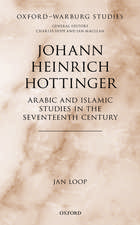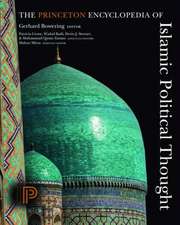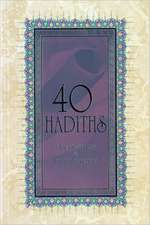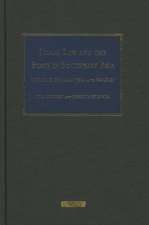The Digital Origins of Dictatorship and Democracy: Information Technology and Political Islam: Oxford Studies in Digital Politics
Autor Philip N. Howarden Limba Engleză Paperback – 30 sep 2010
| Toate formatele și edițiile | Preț | Express |
|---|---|---|
| Paperback (1) | 267.42 lei 31-37 zile | |
| Oxford University Press – 30 sep 2010 | 267.42 lei 31-37 zile | |
| Hardback (1) | 427.34 lei 31-37 zile | |
| Oxford University Press – 30 sep 2010 | 427.34 lei 31-37 zile |
Din seria Oxford Studies in Digital Politics
- 8%
 Preț: 172.74 lei
Preț: 172.74 lei - 14%
 Preț: 190.59 lei
Preț: 190.59 lei -
 Preț: 320.09 lei
Preț: 320.09 lei - 8%
 Preț: 155.19 lei
Preț: 155.19 lei - 14%
 Preț: 186.82 lei
Preț: 186.82 lei - 13%
 Preț: 113.15 lei
Preț: 113.15 lei - 13%
 Preț: 239.11 lei
Preț: 239.11 lei - 11%
 Preț: 124.04 lei
Preț: 124.04 lei - 13%
 Preț: 134.32 lei
Preț: 134.32 lei - 13%
 Preț: 140.87 lei
Preț: 140.87 lei - 13%
 Preț: 127.32 lei
Preț: 127.32 lei - 14%
 Preț: 260.44 lei
Preț: 260.44 lei - 12%
 Preț: 129.91 lei
Preț: 129.91 lei - 9%
 Preț: 170.95 lei
Preț: 170.95 lei - 19%
 Preț: 190.50 lei
Preț: 190.50 lei -
 Preț: 322.00 lei
Preț: 322.00 lei - 23%
 Preț: 172.74 lei
Preț: 172.74 lei - 12%
 Preț: 158.31 lei
Preț: 158.31 lei - 27%
 Preț: 180.44 lei
Preț: 180.44 lei -
 Preț: 349.79 lei
Preț: 349.79 lei - 13%
 Preț: 233.79 lei
Preț: 233.79 lei - 28%
 Preț: 490.84 lei
Preț: 490.84 lei - 5%
 Preț: 249.75 lei
Preț: 249.75 lei - 13%
 Preț: 196.29 lei
Preț: 196.29 lei - 14%
 Preț: 253.71 lei
Preț: 253.71 lei - 27%
 Preț: 672.25 lei
Preț: 672.25 lei - 30%
 Preț: 641.98 lei
Preț: 641.98 lei - 27%
 Preț: 198.68 lei
Preț: 198.68 lei - 9%
 Preț: 171.85 lei
Preț: 171.85 lei - 18%
 Preț: 223.52 lei
Preț: 223.52 lei - 26%
 Preț: 687.34 lei
Preț: 687.34 lei - 26%
 Preț: 874.14 lei
Preț: 874.14 lei - 23%
 Preț: 196.96 lei
Preț: 196.96 lei - 19%
 Preț: 190.50 lei
Preț: 190.50 lei - 23%
 Preț: 199.10 lei
Preț: 199.10 lei
Preț: 267.42 lei
Preț vechi: 281.14 lei
-5% Nou
Puncte Express: 401
Preț estimativ în valută:
51.18€ • 53.10$ • 42.77£
51.18€ • 53.10$ • 42.77£
Carte tipărită la comandă
Livrare economică 04-10 martie
Preluare comenzi: 021 569.72.76
Specificații
ISBN-13: 9780199736423
ISBN-10: 0199736421
Pagini: 304
Dimensiuni: 229 x 152 x 17 mm
Greutate: 0.44 kg
Ediția:New.
Editura: Oxford University Press
Colecția OUP USA
Seria Oxford Studies in Digital Politics
Locul publicării:New York, United States
ISBN-10: 0199736421
Pagini: 304
Dimensiuni: 229 x 152 x 17 mm
Greutate: 0.44 kg
Ediția:New.
Editura: Oxford University Press
Colecția OUP USA
Seria Oxford Studies in Digital Politics
Locul publicării:New York, United States
Recenzii
A long-awaited inquiry into the politics of the Internet...Howard's book is an innovative contribution among the overwhelming amount of writings about the role of the Internet in the Middle East...Howard puts much effort in explaining the multifaceted results, adding tables to summarize important findings. This nuanced approach is a pleasant break from the often-found urge for absolute (utopian or dystopian) claims...The book is highly recommended as required reading for technology experts, graduate students, and longer serving academics alike.
At a time when everyone is asking whether new media affects politics in the Mid-East, Philip Howard has produced the definitive answer in his book. This is an impressive work of scholarship, both in its quantitative approach to international affairs and in its conclusions, which will be of interest to social scientists and policy makers alike.
This book presents a most challenging and original analysis of the cultural and political dynamics of the Muslim world through the lens of the interaction between communication technology and politics. It breaks new ground in our understanding of the implications of digital technology for socio-political change. It will become a reference in political communication for the years to come.
For too long the literature on the politics of the new information technologies has been empirically thin and theoretically overheated. By substituting systematic empirical analysis for anecdote and nuanced interpretation for hyperbole, Howard has written an original and important book that scholars of comparative politics, democratization, contentious politics and the new information technologies will be obliged to read. As he provocatively reminds us (quoting Kranzberg), 'technology is neither good nor bad, nor is it neutral.
In contests between dictatorship and democracy, new media exert increasingly determinative influence. Philip Howard provides a detailed, thoughtful analysis of how the flow of information and tools of communication are reshaping global politics.
At a time when everyone is asking whether new media affects politics in the Mid-East, Philip Howard has produced the definitive answer in his book. This is an impressive work of scholarship, both in its quantitative approach to international affairs and in its conclusions, which will be of interest to social scientists and policy makers alike.
This book presents a most challenging and original analysis of the cultural and political dynamics of the Muslim world through the lens of the interaction between communication technology and politics. It breaks new ground in our understanding of the implications of digital technology for socio-political change. It will become a reference in political communication for the years to come.
For too long the literature on the politics of the new information technologies has been empirically thin and theoretically overheated. By substituting systematic empirical analysis for anecdote and nuanced interpretation for hyperbole, Howard has written an original and important book that scholars of comparative politics, democratization, contentious politics and the new information technologies will be obliged to read. As he provocatively reminds us (quoting Kranzberg), 'technology is neither good nor bad, nor is it neutral.
In contests between dictatorship and democracy, new media exert increasingly determinative influence. Philip Howard provides a detailed, thoughtful analysis of how the flow of information and tools of communication are reshaping global politics.
Notă biografică
Philip N. Howard is an Associate Professor of Communication at the University of Washington. His previous authored book, New Media Campaigns and the Managed Citizen (Cambridge, 2006), won the American Sociological Association's Communication Technology and Society Section Best Book Award and the International Communication Association's Outstanding Book Award.













